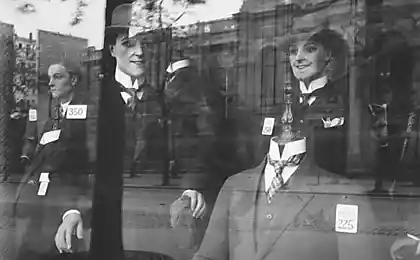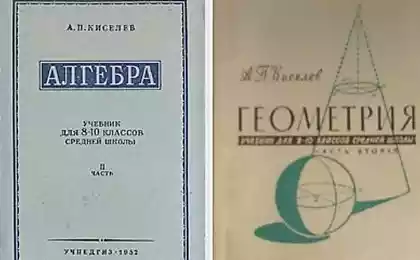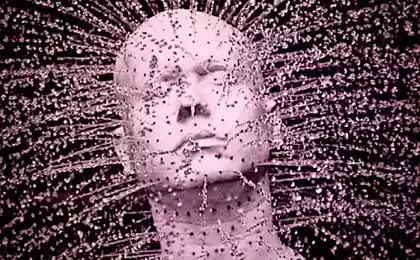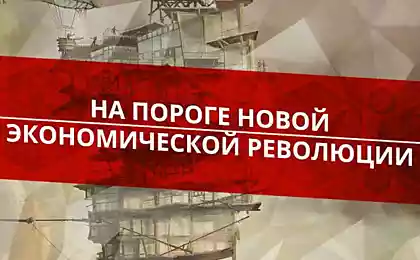564
Empty words — a brief history of the term "revolution"

© Uwe Schramm Political terms are not ideologically neutral, but, on the contrary, often are an instrument of current political struggle or expression existing in the society of power relations. What certain terms meant in different times and what's behind them now. In the new issue — the suffering and the paradoxical "revolution" manipulated, it seems, almost everything from the Jacobins to Mahatma Gandhi.The term "revolution" comes from the Latin word "revolution" which in the meaning of "turnover" applied to astronomical processes and pointed out their cyclical nature. The term became widely used after the work of Nicolaus Copernicus "On the revolutions of the celestial spheres" ("De revolutionibus orbium coelestiam").
Hannah Arendt in "On revolution" indicates that the cyclical nature of the original astronomical term correlated with the cyclical view of human destiny. By the seventeenth century, the term passed into the political sphere and as a metaphor meant a constant change of different forms of government, which, like heavenly bodies alternate with each other, while keeping the immutability of the eternal cycles.
Arendt writes that the modern notion of revolution associated with the experience of the absolute novelty of the place of historical events. The idea of freedom, which formed the basis of the American and the French revolutions, suggested a way out of the vicious circle of successive natural processes — strengthening of despotism and rebellion of the disenfranchised masses against the oppressors for temporary release. Now, the question was raised not about liberation, about freedom, that is, the full participation of citizens in the political process, which required a fundamental change in form of government. However, the first revolutionaries were totally devoid of the pathos of novelty. On the contrary, they considered themselves "restorers" restorers of the eternal order. Here is the original paradox inherent in the term "revolution".
Odessa M. and D. Feldman in the monograph "Poetics of power" describe in detail the specifics of understanding of the term by his contemporaries for political change. So the restoration of a strong Royal power Henry IV in 1594, was called the revolution, while the overthrow of Charles I, which later in the nineteenth century became known as the "great English revolution", by analogy with French, contemporaries called the "great rebellion." Thus, in the XVII century, particularly in the English tradition, the revolution was perceived primarily as restoration of legitimate authority, as it was understood at the time, that is, return the throne to its rightful contender. The events of 1688-1689 years, the exile of James II and the Stuart accession to the throne of William III also called "the Glorious revolution". However, this event occurred on the extension of Parliament's mandate and the adoption of the "bill of rights". It brought the meaning of the term "revolution" to the modern.
The first "revolutionaries" were totally devoid of the pathos of novelty. On the contrary, they considered themselves "restorers" restorers of the eternal order.
Experience such a revolution was not in vain, as it is to overthrow James II appealed to Americans during the colonial rebellion of 1775 if the British had the right to overthrow the tyrant and call it "the glorious revolution", then the same logic could act the Americans, speaking out against the current monarch. In the end, however, the Americans went a different path — to a foreign state is not considered the Americans rebels, they declared themselves not citizens of the UK, but a separate nation. "Declaration of independence" reinforced the ideological base of the revolution, the doctrine of "natural rights" of John Locke.
Followed shortly thereafter by the Great French revolution, in many respects, has inherited the ideals of the English "Glorious revolution" and the American revolution. As a result of the convening of the States General and the requirements of the organization of the legislature, the power of the monarch was limited. Interpretation of the revolution as the return of the legitimate government was reflected in the fact that the citizens returned to their "natural rights", and Louis XVI was called "the restorer of liberty."
According to Hannah Arendt, just as, in the words of Marx, the French revolution "were in Roman robes", any further revolution until the October were marked by the French revolution. As already noted, the pathos of novelty and radical change, which subsequently associated the French revolution, was initially alien to the first revolutionaries. They interpreted these events as a natural restoration of the lost liberties. Characteristic in this sense the famous dialogue between the Duke of La Rochefoucauld-Fizz and Louis XVI in the Bastille day: "C'est une révolte!" ("It's a riot! — FR.) — exclaimed the king. What the Fizz replied: "Non, Sire, c "est une revolution!" ("No, sire, it is revolution!"). The perception of the revolutionary events, the leaders of the revolution changed fundamentally inasmuch as they unfolded.
8 July 1791 he published a decree of the French constituent Assembly, which introduced the concept of "state of siege", fundamentally different from the concept of a "state of war". We are talking about a situation where all functions vested in the civil power for the maintenance of public order, are transferred to the competence of the military authorities. Writes Giorgio Agamben in "Homo sacer. A state of emergency", then the concept of "state of siege" gradually distanced itself from the military functions, going to the area of policy. Later was adopted the law allowing to suspend the Constitution indefinitely in the case of disturbances that threaten the security of the state. From this moment begins the history of the concept of "state of emergency", using which the state is acting in circumvention of the laws, ignoring the principle of separation of powers. So twelve years of Nazi rule in Germany, from a legal point of view, there was a continuous state of emergency.
In the early twentieth century public opinion in most European countries the term "revolution" was in General ideologically neutral and had positive connotations.
D. Feldman in "Terminology of power," notes that over the years 1792-1793, it is the Jacobins introduced a new meaning to the concept of "revolution". After the revolution of 1793, in which the Jacobins seized power in the Convention, the revolution officially interpreted not as a single event but as a process of building a new social order and to protect it from supporters of reaction. The main method of control in this situation becomes a preventive intimidation of society, which is exercised by the terror of the crowd or of state terror. Any action of a "revolutionary government" are considered a priori legitimate. The adjective "revolutionary" now means "extraordinary", and in combination with the name of a state on it indicates that the body is endowed with extraordinary (unlimited) powers. Thus, the Jacobins for the first time in history adopted a practice of revolutionary terror.
In subsequent years, the concept of "revolutionary" taboo because of the Association with the Jacobin terror, while the term "revolution" retained its sacredness. The participants of the July revolution in France 1830, tried to replicate the model of 1789, less Jacobin coup. Russian Decembrists wanted to be considered revolutionaries, not the rebels (as they tried hard to represent the Royal government), but also didn't want to be associated with the Jacobin terror 1792-1793 years. To 1840 years during the radicalization of the democratic part of the society there is a further romanticizing of revolutionary mythology. During the revolution of 1848 was also used methods introduced by the Jacobins.
In the mid-nineteenth century, the first in the history of the anarchist Pierre Joseph Proudhon coined the term "permanent revolution", meaning that there is no separate local revolutions, and there is a single world revolutionary process. At this time, the socialists interpret the previous revolutions as "bourgeois", in which wide the poor were excluded from the political process. The problem of the revolutionary terror is solved by socialists in theory. Previous revolutions were made by a minority, which was accompanied by mass bloodshed. If a revolution will be made by majority, of terror and murder will be less. Marx in the Preface to "Capital," articulated the concept of "social revolution" that occurs when the relations of production no longer meet the needs of the productive forces.
During 1850-60-ies in Europe is the rehabilitation of the Jacobin terror by the work of European radicals. As noted by Odessa M., and D. Feldman, during the French revolution of 1870-1871 years, the terror has finally established itself as a revolutionary method. The leaders of the Paris commune used the most basic myths of the period of the Jacobin terror, for example, by reviving the Committee of public safety. The law of hostages, adopted 5 April 1871 Paris commune, called for the punishment of any person having links with counter-revolutionary Versailles government. The purpose of this method was declared preventing future victims of Versailles, while the real purpose was to intimidate society.
In the early twentieth century public opinion in most European countries the term "revolution" was in General ideologically neutral and had positive connotations. So positive that in the postwar years in Germany, the conservatives develop their own revolutionary movement called the Conservative revolution, which combined anti-capitalist rhetoric and nationalist ideology. The main ideologist of the movement, Arthur Moeller van den Bruck opposed the Weimar Republic, the ideal state — the Third Reich — in which by means of national mobilization will be possible to eliminate class contradictions. Klemens von Klemperer writes in his study that within that grouping such different thinkers as Oswald Spengler, Thomas Mann and Max Weber, was an attempt to create the modern theory of opposing the reactionary conservatism on the one hand, and international Communist movement, on the other, the result, however, led to the emergence of Nazism in Germany.
The failure of the revolutions of New time associated with the replacement of the concept of freedom as opportunities of active participation in the public sphere the notion of social "freedom from poverty".
In prerevolutionary Russia the term "revolution" also had positive connotations, although the Jacobin terror in the mind of the public was discouraged. For the Bolsheviks remained generally the actual tradition of socialist interpretations of the Jacobin terror as a bourgeois. However, the language of the Jacobins (the names of the first Soviet repressive organs) and the methods of management of the company firmly established in their practice after the October revolution.
According to Slavoj for žižek, the key idea of Lenin's work "State and revolution" is that true democracy is impossible in the framework of such institution as the state. Therefore, in the conditions of existence of the state, which is itself a tool of repression, terror is a legitimate management tool. This, according to Zizek, is the relationship between the nature of the October revolution and Stalinism. The difference is that in the first years of the Bolshevik regime of terror was openly admitted by the official method of control, so Trotsky even said (in the words of Zizek, "in an almost cocky way") about the undemocratic nature of the Bolshevik regime.
In the first years after the October revolution, the former criminal law was abolished as bourgeois. In the preservation of law and order, the Soviet leaders relied on "revolutionary creativity of the masses", and justice was carried out by revolutionary tribunals and local courts, sentencing discretion, on the basis of "revolutionary conscience and revolutionary legal awareness". These concepts have been deliberately blurred, as no laws were to impede the revolution and to constrain government action.
As Feldman notes, the adjective "revolutionary" in the official Soviet language, like other adjectives, derived from the Soviet ideology (class, nation, proletariat), was used to contrast any phenomenon is its analogue in the capitalist countries ("the MP" is not just an MP). Already in 1921, officially used the term "revolutionary legitimacy", the appearance of which was to make it clear to foreign governments that the period of war communism and the red terror in Soviet Russia was over. In the official documents, including the Constitution of the USSR in 1922, it was emphasized not only compliance with laws but also the possibility of treatment, if required by expediency. Later to solve urgent political goals (at the time of the propaganda campaign against Trotsky or the condemnation of the cult of personality of Stalin at the XX Congress of the CPSU) until the dissolution of the USSR, the Soviet leaders have condemned one or the other prior to the political course as a deviation from the "revolutionary law" bequeathed by Lenin.
1960-ies was accompanied by a worldwide revolutionary movements and uprisings. V. Podoroga writes that the may events in Paris 1968 was perceived as a continuation of the 1848 revolution, that is, the last bourgeois revolution in France. The rise of prosperity in the 1950s and 1960s years, which resulted in the modernization in France, the emergence of a new majority (the future silent majority) in the classless post-industrial society. The unrest in may 1968 in Paris — and the last attempt at "revolution of Liberation." The liberation sought by the uprising, are not treated in the civil and in the economic and existential context.
In the second half of the XX century becomes authoritative, the concept of "civil resistance" or "nonviolent resistance." For the first time this term was used by Mahatma Gandhi to refer to the required actions when a simple civil disobedience is not enough. Her idea is to use non-violent methods (demonstrations, strikes, boycotts) as opposed to coercive measures. Among the examples of civil resistance, Adam Roberts and Timothy Garton ash in his book "Civil Resistance and Power Politics: The Experience of Non-violent Action from Gandhi to the Present" is called the civil rights movement in the USA in the 1960-ies, a "Revolution of the carnations" in Portugal in the years 1974-75, the Iranian revolution 1974-1979, the uprising at Tiananmen square in 1989, revolution in Central and Eastern Europe 1980-ies, as well as the "color revolutions" of recent decades.
Civil resistance is determined mainly through the juxtaposition of military coups. Non-violent resistance implies that the statement is made on behalf of the civil society. Timothy Garton ash notes that most revolutions in Central and Eastern Europe that occurred in the 1980's–90-ies, was aimed not at an abstract idea of a future ideal model of society, existing in the West the political system. They do not set ourselves a global goal, and was limited to the specific tasks of democratization of the existing political regimes. Thus, the "peaceful revolution" was perceived by participants in the tradition of the bourgeois revolutions of the XVIII and XIX centuries.
Hannah Arendt, in analyzing the experience of the great French and American revolutions, comes to the conclusion that the failure of the revolutions of New time associated with the replacement of the concept of freedom as opportunities of active participation in the public sphere the notion of social "freedom from poverty". The later is not economic liberation of the poorest, and as the freedom to constantly push back the horizon of economic opportunities. We are talking about consumer society, in which constant desire for enrichment displaces the desire to participate in public administration. Arendt calls this "the ideal of individual happiness," which replaced the ideal of social freedom, proclaimed by the American revolution.
Example of modern usage:"In Russia there is something quite different, a rather unusual thing: the revolution of the middle class — class, inherently non-revolutionary". B. Akunin.Explain investigators.
Bibliography:H. Arendt. About the revolution.
Odessa M., And D. Feldman. The poetics of power.
D. Feldman. Terminology of power.
Slavoj Zizek. Revolution at the Gates. Afterword: Lenin "s Choice.
D. Agamben. The Homo sacer. A state of emergency.
V. Podoroga. The apology is political.
Adam Roberts, Timothy Garton Ash. Civil Resistance and Power Politics: The Experience of Non-violent Action from Gandhi to the Present.
Klemens von Klemperer. Germany's New Conservatism.
Source: theoryandpractice.ru
Michael Mosley —free will is just a myth
5 scientists trying to prove scientifically the existence of God























